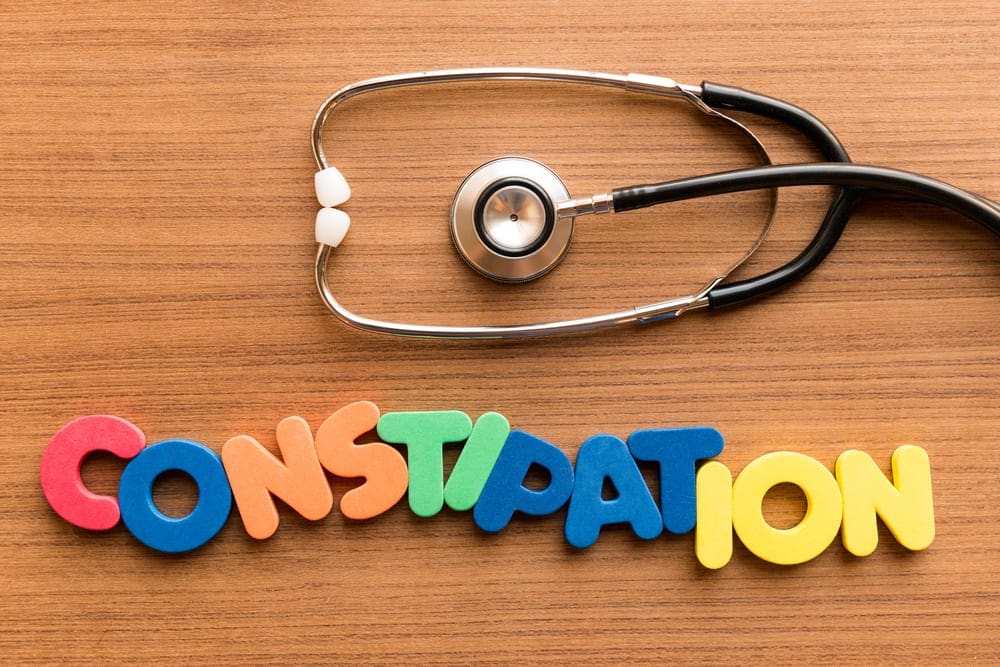Discover the keys to a constipation-free life with our comprehensive guide on managing and preventing constipation through dietary changes, lifestyle modifications, and over-the-counter solutions. Learn safe and effective strategies for unblocking wellness and improving your digestive health today.
Table of Contents
Introduction
Constipation is a common digestive disorder that affects individuals of all ages, leading to discomfort and a decreased quality of life. Understanding its causes and implementing effective strategies can significantly enhance your well-being. This article explores the essentials of maintaining a constipation-free life, emphasizing the significance of dietary and lifestyle modifications, natural remedies, and when necessary, medical intervention.
Causes of Constipation
Constipation, a common digestive condition, arises due to a variety of factors that impede the regularity and ease of bowel movements. Understanding these causes is crucial for effectively managing and preventing constipation. Here are the primary factors:
- Dietary Habits: One of the most significant contributors to constipation is a diet low in fiber. Fiber adds bulk to stool and helps it pass more easily through the intestines. Foods lacking in fiber include highly processed snacks, meat, dairy products, and fast foods.
- Hydration Levels: Adequate hydration is essential for preventing constipation. Water helps to soften the stool, making it easier to pass. Insufficient water intake can lead to drier, harder stools that are more difficult to expel.
- Physical Activity: A sedentary lifestyle can slow down the digestive system, leading to constipation. Regular physical activity helps stimulate intestinal movements, known as peristalsis, aiding in the easier passage of stool.
- Medications: Certain medications can cause constipation as a side effect. These include opioids, certain antacids, iron supplements, antispasmodics, and some blood pressure medications.
- Age: As people age, their metabolism slows down, including the digestive process. Additionally, older adults are more likely to take medications that can cause constipation and may not be as physically active.
- Ignoring the Urge to Go: Regularly ignoring the urge to have a bowel movement can lead to constipation. Over time, this can cause the body to stop signaling the need to go, exacerbating the issue.
- Health Conditions: Various health issues can cause constipation, including neurological disorders like Parkinson’s disease, endocrine and metabolic conditions like hypothyroidism, and gastrointestinal disorders like irritable bowel syndrome (IBS).
- Psychological Factors: Stress, anxiety, and depression can significantly affect the digestive system and lead to constipation. Mental health impacts gut health, influencing how the digestive tract functions.
- Routine Changes: Travel or other disruptions to a person’s daily routine can affect bowel movements. Changes in meal times, activity levels, and bathroom schedules can lead to constipation.
- Pregnancy: Hormonal changes during pregnancy can slow down the digestive system, and the pressure of the growing uterus can also impact bowel movements, leading to constipation.

Symptoms of Constipation
- Infrequent Bowel Movements: Having fewer than three bowel movements a week is a primary indicator of constipation.
- Hard, Dry, or Lumpy Stools: Stools that are difficult to pass, often because they are hard and dry, are a hallmark of constipation.
- Straining During Bowel Movements: Experiencing difficulty or having to strain excessively to pass stools can indicate constipation.
- Feeling of Incomplete Evacuation: The sensation that not all stool has been passed after a bowel movement is a common symptom of constipation.
- Discomfort or Pain in the Abdomen: Constipation can cause abdominal discomfort, bloating, or pain due to the accumulation of stool in the colon.
- Loss of Appetite: Prolonged constipation can lead to a feeling of fullness and a decrease in appetite.
- Nausea: In some cases, constipation can also cause nausea due to the build-up of waste products in the body.
- Swelling in the Abdomen: Constipation can cause abdominal swelling or distention as a result of accumulated stool and gas.
Dietary Changes for Relief
1. Increase Fiber Intake
Fiber adds bulk to the stool and helps it move smoothly through the digestive tract. Aim for 25 to 30 grams of fiber per day from sources like:
- Fruits: Apples, pears, berries, oranges, and bananas.
- Vegetables: Broccoli, carrots, spinach, and Brussels sprouts.
- Legumes: Beans, lentils, and chickpeas.
- Whole Grains: Oats, brown rice, barley, and whole wheat products.
- Nuts and Seeds: Almonds, chia seeds, and flaxseeds.
2. Stay Hydrated
Drinking plenty of fluids, especially water, helps soften stool and supports healthy bowel movements. Aim for at least 8 glasses of water a day. Other hydrating fluids include herbal teas and clear broths.
3. Incorporate Probiotics
Probiotics are beneficial bacteria that enhance gut health and digestion. Foods rich in probiotics, such as yogurt, kefir, sauerkraut, and kimchi, can help improve the frequency and consistency of bowel movements.
4. Limit Low-Fiber Foods
Reduce the intake of low-fiber and processed foods that can exacerbate constipation. This includes meat, dairy products, and high-fat snacks, as well as sugary drinks and pastries.
5. Choose Healthy Fats
Including healthy fats in your diet can also aid digestion. Foods such as avocados, olive oil, and nuts contain fats that can help lubricate the intestines and ease bowel movements.
6. Prunes and Prune Juice
Prunes are known for their natural laxative effects due to their high fiber content and the presence of sorbitol, a sugar alcohol that has a laxative effect. Prune juice can also be effective in stimulating bowel movements.
7. Consider Food Timing
Eating regular meals and snacks at the same times each day can help establish a regular bowel movement pattern.
8. Listen to Your Body
Pay attention to how different foods affect your digestion and adjust your diet accordingly. Some people find that reducing intake of gluten or lactose-containing products can help ease constipation.

Lifestyle Modifications
Lifestyle modifications play a significant role in preventing and relieving constipation. By incorporating certain changes into your daily routine, you can promote regular bowel movements and improve overall digestive health. Here are some effective lifestyle adjustments to consider:
- Increase Physical Activity: Regular exercise helps stimulate the intestines and can enhance the frequency of bowel movements. Aim for at least 30 minutes of moderate exercise most days of the week. Activities like walking, jogging, swimming, and yoga are beneficial.
- Establish a Routine: Try to establish a regular time each day for bowel movements, ideally after a meal, to take advantage of the body’s natural rhythms. This can help train your digestive system to become more regular.
- Stay Hydrated: Drinking plenty of fluids, especially water, can help prevent stools from becoming hard and difficult to pass. Aim for at least 8 glasses of water a day, and consider warm liquids in the morning to stimulate bowel movements.
- Manage Stress: High levels of stress can negatively affect your digestive system. Incorporate stress-reduction techniques such as deep breathing, meditation, mindfulness, or gentle exercise into your daily routine to help manage stress and its impact on your bowel movements.
- Mind Your Posture on the Toilet: Proper positioning can help facilitate a smoother bowel movement. Consider using a small stool to elevate your feet while sitting on the toilet, which can help mimic a squatting position and align the intestines in a way that promotes easier passage of stool.
- Limit Intake of Constipating Foods: Some foods can exacerbate constipation, including dairy products, red meat, fried foods, and sweets. While you don’t have to eliminate these foods entirely, moderating your intake can help alleviate constipation.
- Avoid Holding It In: Ignoring the urge to have a bowel movement can lead to harder stools and more difficulty passing them later. Whenever possible, respond to your body’s signals promptly.
- Consider Your Medications: Some medications, including certain painkillers, antidepressants, and high blood pressure drugs, can cause constipation. If you suspect your medication is affecting your bowel movements, discuss alternatives or solutions with your healthcare provider.
- Practice Good Sleep Hygiene: Quality sleep is essential for overall health and can also affect digestive health. Establish a regular sleep schedule and create a restful environment to improve your sleep quality.
The Role of Hydration
Importance of Hydration in Preventing Constipation
- Stool Softening: Adequate water intake ensures that the stool remains soft and moist, making it easier to pass through the intestines. Dehydration can lead to hard, dry stools that are difficult to expel.
- Digestive Health: Water is crucial for the digestion of food and the absorption of nutrients. It helps dissolve fats and soluble fiber, allowing these substances to pass through the intestines more easily.
- Bowel Function: Hydration aids in the smooth functioning of the entire digestive system. It helps maintain the mucosal lining of the intestines and supports the movement of digested food through the gut.

How to Maintain Adequate Hydration
- Daily Water Intake: Aim for at least 8-10 glasses of water a day, but remember that individual needs can vary based on factors such as age, weight, activity level, and climate.
- Incorporate Hydrating Foods: Foods with high water content, such as fruits (e.g., watermelon, oranges, and cucumbers) and vegetables (e.g., tomatoes, celery, and lettuce), can contribute to your overall fluid intake.
- Monitor Fluid Loss: Increase your water intake during hot weather, when you’re physically active, or if you’re experiencing fever, vomiting, or diarrhea, as these conditions can lead to increased fluid loss.
- Limit Dehydrating Beverages: While caffeinated drinks and alcohol may temporarily quench your thirst, they can actually dehydrate you in the long run. It’s best to consume these beverages in moderation and always compensate with additional water intake.
- Listen to Your Body: Thirst is a clear signal from your body that it needs more fluids. However, don’t wait until you’re thirsty to drink water; by that time, you may already be dehydrated. Instead, sip water throughout the day.
- Check Your Urine: The color of your urine is a good indicator of hydration levels. Aim for light yellow urine; dark yellow or amber-colored urine can suggest dehydration.
Stress and Its Impact on Digestion

How Stress Affects Digestion
- Altered Digestive Secretions: Stress can affect the secretion of digestive juices and stomach acid, leading to indigestion, heartburn, or a decrease in nutrient absorption.
- Gut Motility: Stress can either slow down or speed up the movement of food through the digestive system, leading to constipation or diarrhea. Chronic stress often results in prolonged periods of constipation.
- Inflammation: High levels of stress can contribute to inflammation in the gastrointestinal tract, exacerbating conditions like Irritable Bowel Syndrome (IBS) and increasing the risk of constipation.
- Microbiome Imbalance: Emerging research suggests that stress can disrupt the balance of beneficial and harmful bacteria in the gut microbiome, potentially affecting digestive health and bowel habits.
Managing Stress to Improve Digestion
- Mindfulness and Relaxation Techniques: Practices such as meditation, deep breathing exercises, and yoga can help reduce stress levels and may have a positive effect on digestive health.
- Regular Exercise: Physical activity is not only good for overall health but also helps in managing stress and promoting regular bowel movements.
- Adequate Sleep: Ensuring sufficient and quality sleep can help reduce stress levels and support healthy digestive functions.
- Healthy Eating Habits: Consuming a balanced diet and eating meals in a calm, relaxed environment can improve digestion. Avoiding excessive caffeine and sugary foods, which can exacerbate stress and its effects on the digestive system, is also beneficial.
- Seeking Support: Talking to a therapist or counselor can help in developing effective stress-management strategies. Support groups or talking with friends and family can also provide emotional support.
- Time Management: Effective time management techniques can help reduce the feeling of being overwhelmed, which in turn can lower stress levels.
The Importance of a Regular Routine
Regularity in Eating Habits
Eating meals and snacks at the same times each day can help regulate your digestive system’s functions. The body thrives on predictability; when it knows to expect food, it can prepare by initiating digestive processes, such as releasing digestive enzymes and regulating bowel movements. This can help prevent constipation by ensuring a steady movement of food through the digestive tract.
Consistent Exercise
Physical activity stimulates the muscles in the intestines, helping to move stools through the digestive system more efficiently. By incorporating regular exercise into your daily routine, you can help prevent the stools from becoming hard and difficult to pass, thereby reducing the risk of constipation.
Adequate Hydration
Setting specific times to drink water throughout the day can ensure you stay properly hydrated, which is essential for softening stools and promoting easy bowel movements. Establishing a routine for fluid intake can help prevent dehydration, a common cause of constipation.
Stress Reduction
A regular routine can significantly reduce stress levels, which, in turn, benefits digestive health. High stress levels can negatively impact gut function and exacerbate digestive issues, including constipation. Incorporating stress-reduction activities such as meditation, reading, or taking walks at set times each day can help manage stress and its effects on the digestive system.
Sleep Patterns
Maintaining a regular sleep schedule is vital for digestive health. Disruptions in sleep can upset the body’s natural rhythms, including those that regulate bowel movements. Consistent sleep patterns can help ensure that the digestive system functions smoothly, reducing the risk of constipation.
Bowel Movement Schedule
Encouraging a regular bowel movement schedule, such as attempting to go at the same time each day, can train the body to have regular bowel movements. This can be particularly effective when done after meals, taking advantage of the gastrocolic reflex, which is a natural increase in intestinal activity following food intake.
Over-the-Counter Solutions and Their Safe Use
1. Fiber Supplements
Examples: Psyllium (Metamucil), methylcellulose (Citrucel), polycarbophil (FiberCon).
How They Work: Fiber supplements help by adding bulk to the stool, which can make it easier to pass.
Safe Use: Start with a low dose and gradually increase it to avoid gas and bloating. Ensure adequate water intake to help the fiber work effectively.
2. Stool Softeners
Examples: Docusate sodium (Colace, Dulcolax Stool Softener).
How They Work: Stool softeners add moisture to the stool, making it softer and easier to pass.
Safe Use: Stool softeners are generally safe for short-term use. They’re often recommended for people who should avoid straining, such as after surgery or childbirth.
3. Osmotic Laxatives
Examples: Polyethylene glycol (MiraLAX), lactulose, magnesium hydroxide (Milk of Magnesia).
How They Work: These draw water into the bowel to soften stools and stimulate bowel movements.
Safe Use: Follow the dosage instructions carefully. Overuse can lead to dehydration and electrolyte imbalances.
4. Stimulant Laxatives
Examples: Senna (Senokot), bisacodyl (Dulcolax, Correctol).
How They Work: Stimulant laxatives trigger the intestines to contract, moving the stool along.
Safe Use: These should be used sparingly, as frequent use can lead to dependency and decrease bowel function over time. They’re best reserved for short-term relief.
5. Lubricant Laxatives
Examples: Mineral oil.
How They Work: Lubricant laxatives coat the stool, helping it pass through the intestine more easily.
Safe Use: They are not recommended for long-term use as they can reduce the absorption of fat-soluble vitamins (A, D, E, K). Use under medical advice, especially in children and the elderly.

General Tips for Safe Use of OTC Constipation Remedies
- Read and Follow Directions: Always read the label carefully and follow the recommended dosage instructions.
- Start Low, Go Slow: Begin with the lowest effective dose and adjust as needed to avoid side effects.
- Stay Hydrated: Increase your water intake when using any form of laxative to help them work more effectively and reduce the risk of dehydration.
- Consider Lifestyle Changes: Before relying on OTC solutions, try to address constipation with dietary changes, increased physical activity, and improved hydration.
- Consult Your Healthcare Provider: If you’re regularly relying on OTC laxatives for bowel movements, consult a healthcare professional. Chronic constipation may be a sign of an underlying condition that needs medical evaluation.
- Beware of Overuse: Using laxatives too frequently can lead to dependency and worsen constipation over time. It can also cause dehydration and electrolyte imbalances.
Conclusion
Achieving and maintaining a constipation-free life involves a holistic approach, including dietary changes, lifestyle modifications, and, when necessary, medical intervention. By understanding the causes and implementing the strategies outlined in this article, you can enhance your digestive health and overall well-being.
FAQs
- What foods are high in fiber for constipation relief?
- Fruits, vegetables, whole grains, legumes, nuts, and seeds are excellent sources of fiber.
- How much water should I drink to prevent constipation?
- Aim for at least 8-10 glasses of water daily, though individual needs may vary.
- Can exercise really help with constipation?
- Yes, regular exercise stimulates bowel movements and reduces the time food travels through the colon.
- Are over-the-counter laxatives safe to use?
- While they can be effective, it’s important to use them as directed and not rely on them long-term without consulting a healthcare provider.
- When should I see a doctor for constipation?
- If you experience persistent constipation, significant pain, blood in your stool, or sudden changes in bowel habits, it’s time to seek professional advice.










